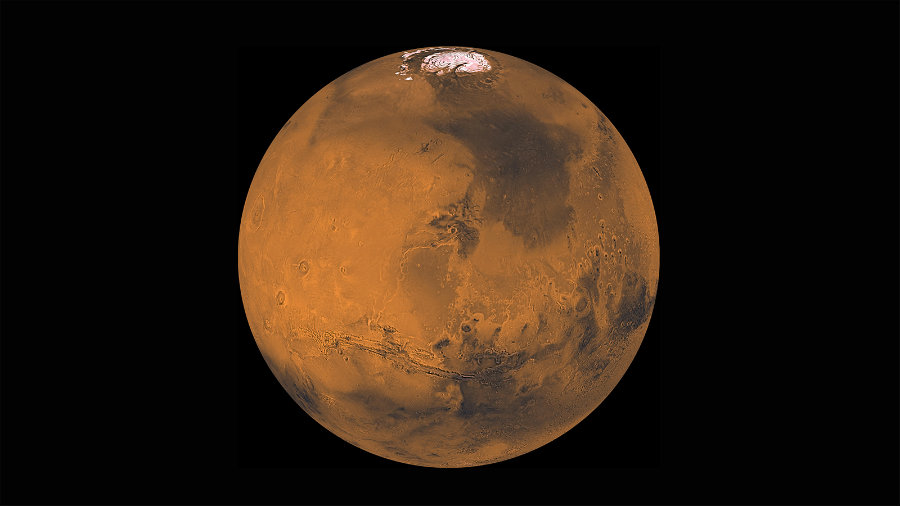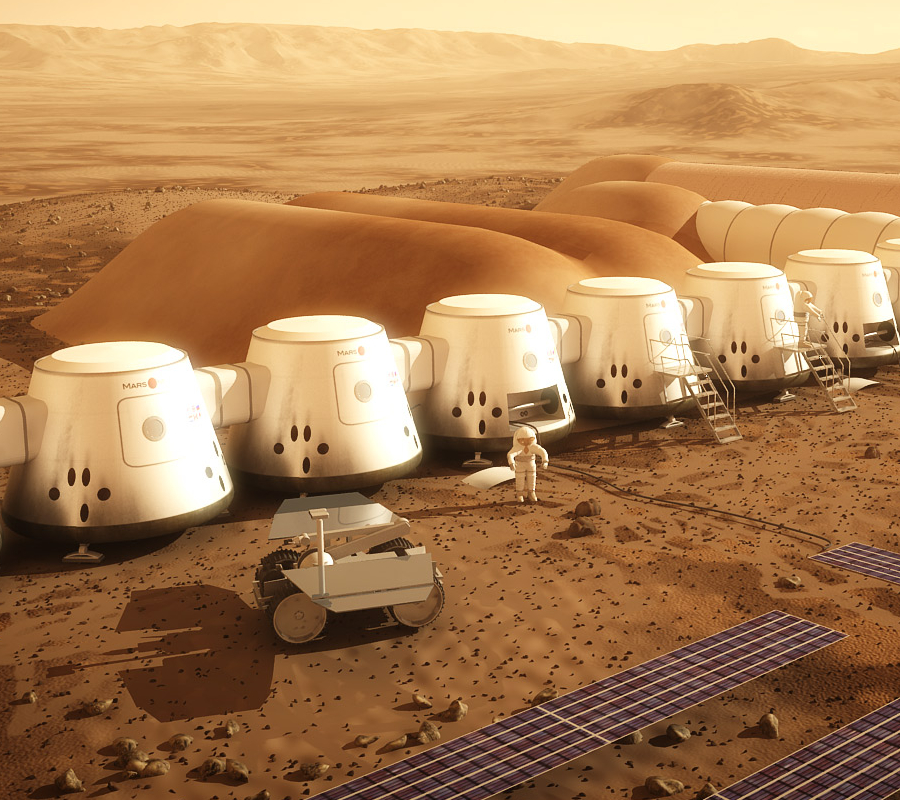The American global aerospace, defense, and technology company, Lockheed Martin, announced it is developing a space program oriented toward the possible colonization of the Red Planet by 2028. The principal objective of the space mission would be to send astronauts to the orbit of Mars for a three-year period.
Lockheed Martin revealed its plans in the latest National Space Club Florida Committee meeting last Tuesday. In the reunion, they explained how they intend on assigning a body of research tasks for the astronauts to carry out while orbiting the planet. Ideally, these astronauts would be able to control drones or rovers that would show them which are the best places for humans to settle down, and therefore, the best locations for next space colonizing missions.

“The concept is simple: transport astronauts from Earth to a Mars-orbiting science laboratory where they can perform real-time scientific exploration, analyze Martian rock and soil samples, and confirm the ideal place to land humans on the surface in the 2030s,” the official outline of the Lockheed Martin project read on its website.
According to Tony Antonelli, a former NASA space shuttle pilot and current leader of civil space programs for Lockheed Martin company, the planning that his company has developed would be achieved within the next 12 years. However, he acknowledges that government, industry and international conjoint participation is needed to accomplish the tasks.
Mars is a common objective for many space organizations
Even when the United States is the only nation to have efficiently deployed a piece of machinery on the Red Planet, there are many space organizations and agencies (governmental or private) that have Mars as one of their primary goals for the upcoming years. In fact, one of the last appointments former President Obama did before leaving the White House was the acknowledging of Mars as a clear goal for humans for as late as 2030.
This month, the United States Congress approved a bill that granted significant funding to NASA, knowing that a certain part of that federal money would be used for the development of projects oriented toward the colonizing of Mars. NASA will receive nearly $20 billion and was instructed by the bill to “work toward a Mars human spaceflight mission to be launched in 2033.”

In this issue, countries like the United Arab States have stated that they intend to build the first city on the surface of Mars, which was described as a “Chicago-sized” hub. Also, private organizations have shown their interest in going to Mars.
Dutch entrepreneur Bas Lansdorp and founder of the private space company Mars One has said that they hope to build a city-like structure on the surface of the Red Planet by the year 2032. Also, Elon Musk and his company SpaceX have shown their intentions of colonizing the planet through the development of their special and unique SpaceX Interplanetary Transport System.
Trump’s Administration and space exploration
Many experts consider that President Donald Trump has the future of space exploration in his hands since this are the most crucial times in recent history. According to Casey Dreier, director of space policy for The Planetary Society, most of the major robotic-oriented NASA’s missions are set to conclude in the coming years, and the upcoming schedule is not clear in any way.
The Planetary Society, which is a non-profit and non-governmental organization, is oriented to the research and advocacy of programs related to astronomy and space exploration. It was founded in 1980 by a group of scientists that included Carl Sagan and now has over 40,000 members.

“We are in this period where we really need to start rebuilding lots of science programs for the next generation,” Dreier told the specialized website Space.com. “This administration has the opportunity to basically help set the next decade of planetary and astrophysics exploration at NASA.”
Currently, Bill Bye is the CEO of the Planetary Society, and he and his organization published a body of recommendations for President Trump regarding the future of the United States’ upcoming space exploration programs.
There are five key suggestions made by Nye and his organization. These include the prioritizing of Mars as the key goal to accomplish by NASA, the development of plans regarding the possible colonization of the Red Planet by 2033, the expanding of NASA’s “highly successful science portfolio,” the continuous support to the entire commercial space field and an increase in the budget NASA receives in 5 percentual points per year.
In a video released by the non-profit organization, Nye openly talks to President Trump, and he confirms the importance that Trump’s decisions would have to the future of space investigations in the country. Nye said that Trump can lead the outer space next discoveries and make history during his time as president.
Source: Planetary
